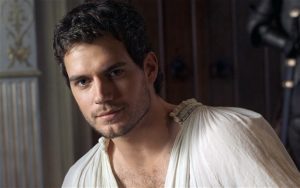As those of you who like nothing more than checking out my ‘book review’ section will know, I’ve recently digested Sarah-Beth Watkin’s new offering on Mary ‘the French Queen’ Tudor and her controversial husband, Charles Brandon. It got me thinking about a question I’ve been pondering on and off since Henry ‘Clark Kent’ Cavil first caught the world’s eye in the great drama/questionable history series ‘the Tudors’: were the couple truly a love match?
For some reason, I can’t shake the feeling that the fact the marriage was so controversial, somewhat distorts discussion on this subject. It should never have taken place at all: therefore,the argument goes, it must have been a union of passion. To add to the mix, Charles made up in sex appeal what he lacked in status and Mary was the royal beauty of her generation; is it any wonder they fell head over heels for each other?
But I’m not convinced. Charles of course was not faithful to Mary. While by the standards of the day this can hardly be counted against him it still has to raise questions for those who want to view their relationship through rose tinted glasses.
And when they married, Mary was a desperate woman. She had hated being married to the decrepit and aged French King and knew full well that her brother would break his promise to let her wed who she chose second time around. Did she rush to marry Charles the second he arrived in France to collect her because he was her long cherished desire? Or was he simply her nearest get out of jail free card?
Charles, similarly, had motives other then those of the heart that must be considered. He was a classic late-medieval ‘man on the make’ who had treated women appallingly in the past for his own financial betterment. Mary may not have brought him much in terms of cash – but marriage to the King’s sister would advance him hugely and give his children by her a claim to the throne. The fact she was affable and attractive might just have been a bonus.
Perhaps I’m being too cynical. There almost certainly were feelings involved on both sides. But the observations that their life together was never particularly happy and that Charles remarried with indecent haste after Mary’s death should give us pause before concluding that their rushed marriage was a crime of nothing but passion.
The couple certainly needed each other. But head, rather than heart, was probably what determined their actions.
